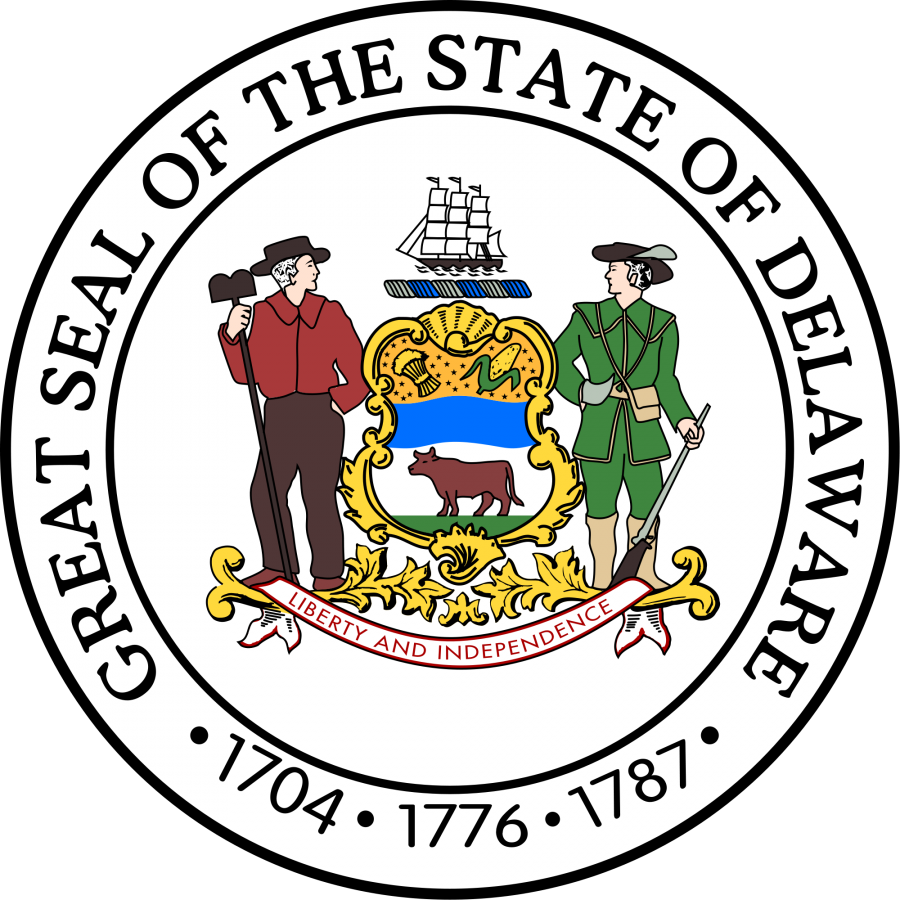Nominees Look Forward to November
September 19, 2016
Delaware’s state primary election for local offices took place on Tuesday, September 13, 2016. The primaries do not determine who is elected, but they decide each party’s nominee for the general election on November 8, 2016 will be. While Delaware has typically been a Democratic-held state, many of the Republican nominees are hopeful.
The office of Lieutenant Governor, for the first time in 30 years, has experienced a competitive race. The office has been vacant since January 6, 2015, when Matthew Denn (D) left the position to be the Attorney General. The Delaware Constitution doesn’t account for such an occurrence, so the spot has remain empty. La Mar Gunn, (R) was nominated by his party on Tuesday. Gunn, an alum of the University of Delaware, started his own investment banking company and served as president of the Dover branch of the NAACP. In his statement released on his website, Gunn promises that as the next Lieutenant Governor he will “hold legislators and administrators responsible for failed policies, failed education programs.” However, the office has been held by Democrats since 1993, and Gunn’s competitor, Bethany Hall-Long (D), also is preparing herself to win the election in November. Hall-Long served on the Delaware State Senate, representing District 10, and also served as a member of the Delaware House of representatives from 2003 to 2008. She graduated from Thomas Jefferson University, and later attended George Mason University, where she earned her Ph.D. Both candidates are pushing for a win in November, either a historic victory for the Republicans, or a continuation of a long run for the Democrats.
For the office of County Executive, Friends Alum and ex-Editor-in-chief of Whittier, Matthew Meyer won the nomination for the Democratic Party. Meyer is hoping to succeed Tom Gordon, the incumbent county executive. Meyer has taken the Quaker value of stewardship with him in his career, and founded Ecosandals, a company that sells environmentally-friendly footwear to customers on 17 countries in 5 continents. In 2009 he volunteered to go to Iraq as a diplomat with the State Department of the United States. He coordinated economic programs in Mosul, Iraq. Meyer has spent a large part of his life in the service of the public, and will be a tough competitor for his opponent, Mark Blake (R). Mark Blake ran against the current County Executive, Tom Gordon, last election and lost when Gordon beat him with 65% of the vote. Blake is the vice president and land use chairman of the Greater Hockessin Area Development Association, and has been involved with the group for many years. Despite the Democrat Majority in Delaware, Blake believes he has a shot to win as a result of the dissatisfaction with Gordon’s administration. Both candidates have a long road ahead of them until November, and both will have to work their hardest to come out ahead.
Democrat, John C. Carney won his party’s nomination for the office of Governor. Democrats have held the seat since 1993, and Carney intends to maintain that streak. Recent elections have not been too close; Markell won the 2008 election by 35 percentage points. Carney is a U.S. congressman and the former lieutenant governor. He ran unopposed in the primary. His opponents include Colin Bonini (R), a member of the Delaware State Senate representing District 16. He attending Wesley College, and during that time, he worked for U.S. Senator Bill Roth (R). He won the Legislator of the Year award, presented by the Food Bank of Delaware. The two nominees with also be competing against Sean Goward, a Libertarian. Goward served in the U.S. Air Force from 1998 until his retirement in 2014. He works for the Norfolk Southern Corporation as a signal maintenance technician. Lastly, Andrew Groff, the Green Party Nominee will be running for Governor. He graduated from the University of Delaware and currently runs his own company, Avero Holdings, LLC. He ran for the U.S Senator from Delaware, but was defeated by Chris Coons (D). He teaches at the Delaware Technical and Community College. Historically, third party candidates have not received equal share of the press and public attention. Mary Woodward, Librarian and Quakerism teacher, comments, “I wished there was more support for the smaller parties. I wish we could see more third party candidates be taken more seriously by the press.” All four candidates will be looking forward to November.
On Tuesday, democratic nominee Hanifa Shabazz was elected President of Wilmington City Council. Shabazz, who ran against council member and Justen Wright and John McCafferty, described her reaction: “I’m so happy and appreciative that the citizens of Wilmington saw that I had what they were looking for as the president and that they put all of their faith behind me”. Throughout her campaign, Shabazz emphasized her two priorities if elected would be to orient members of the role and function of Council, and develop the organizational structure of the Council. Not only did Shabazz easily edge out her opponents, but she is also the first woman to become President of Wilmington City Council. She will replace Theo Gregory.
In the mayoral primary, former Executive Direction of the Riverfront Development Corporation Mike Purzycki led the group of eight candidates with 23.59 percent. Earlier in his campaign, Purzycki shared his priorities: “We need more opportunities for our residents and a steady focus on economic development to create jobs for those who need them most,” Purzycki said. “We must restore a healthy rhythm to our neighborhoods.” According to the Delaware Department of Elections, Delaware Center for Justice Advocacy Director Eugene Young followed with 21.78 percent, and Former Councilman Kevin Kelley placed third with 20.29 percent.
Lastly, Trinidad Navarro won the Democratic Insurance Commissioner primary with 54.85 percent of votes, and Jeff Cragg edged his opponent to finish the Republican primary with 51.8 percent of votes.































